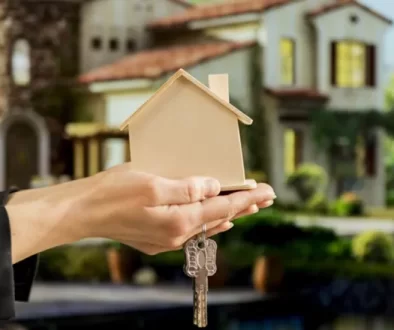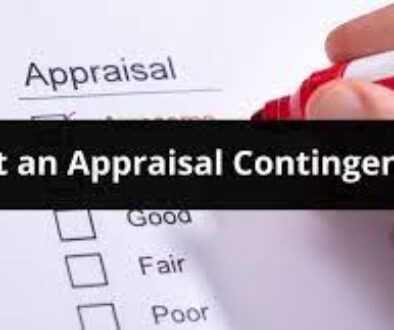HOA Fees
HOA Fees
What Is A Homeowners Association (HOA)?
Homeowners associations – HOAs for short – are private organisations that oversee the management of some residential communities. HOAs establish sets of rules and regulations called bylaws for those living in the community to follow. They’re most often used to govern common-interest communities, such as planned neighbourhoods, townhouses and multi unit apartment buildings or condominiums.
As you might imagine, living in a community run by an HOA can have its pros and cons. While the group’s governance might prevent you from doing exactly what you want with your property, the rules set in place are designed to preserve the neighbourhood and help all the homes maintain their property values. Furthermore, the fees that HOA community residents typically pay are used to maintain the common areas and keep the entire neighbourhood appealing.
HOA Fees: What Do They Include?
As mentioned above, if you live in an HOA community, you’ll usually need to pay fees. These can vary widely depending on the area, the amenities that are included and whether any special assessments have been conducted in the event of a local emergency.
Before buying any home, find out what your monthly HOA fee will be so you can ensure it will fit into your budget. Note that the services your HOA fees cover depend on the area where you live and the amenities of the community. Here are some examples of what might be included:
- Trash pickup
- Landscaping
- Community gym, pool or common areas
- Security
- Maintenance and repairs
Again, calculate any potential HOA fees into your total monthly costs before buying a home in an HOA community. You also should be prepared to make your initial payment at closing; your lender will let you know how much you need to have as part of your closing costs (your seller may have already paid part of the fees and may be planning to prorate them, which will be indicated on your Closing Disclosure) You’ll also learn how these fees will be calculated on an ongoing basis as part of your mortgage payment, or whether you’re required to pay a lump sum at the beginning of the year.
Examples Of HOA Rules
Before you decide to buy a home in a community with an HOA in place, you’ll want to check the HOA rules to make sure that they fit your lifestyle, as sometimes there are fines for breaking rules. The HOA board that runs your community will include its rules and regulations in a Declaration of Covenants, Conditions and Restrictions known as CC&Rs.
An HOA community might enforce a wide variety of rules. Here are a few examples of common HOA rules:
- Structural restrictions: The HOA might require you to have a certain type of fence, or the HOA might make rules, such as disallowing artificial turf, that pertain to the landscaping. Other structural restrictions might include size and placement caveats for a garage or shed.
- Specified paint colours or other exterior design choices: An HOA board will often require you to submit your paint colours for approval. The goal is to make sure no one chooses a hue that’s too garish or that doesn’t blend with the overall neighbourhood aesthetic.
- Noise level restrictions: Worried about your neighbour mowing their lawn too early on a Saturday or the teens next door congregating to play basketball until midnight? HOA rules are designed to make sure everyone can live in harmony. For instance, if residents ever get too noisy, it’s often your HOA’s responsibility to issue warnings or even fines to those who can’t keep the volume down.
- Pet regulations: Backyard chicken coops might be all the rage in some urban areas, but not everyone enjoys the farm-like atmosphere. HOA rules might include limitations on the type of pets and how many pets or animals you can have.
- Rules for neighbourhood or building common areas: Some HOAs might have pools, parks, community centres, tennis and basketball courts and other gathering areas. The CC&Rs will explain who can use these amenities and any rules that pertain to reserving or sharing them.
- Home maintenance and appearance regulations: Weed-filled gardens and tall grass may cease to exist thanks to HOA rules designed to keep any home from becoming an eyesore and dragging down real estate property values. Home maintenance and appearance regulations might also require that you keep your vehicles in a garage.
While these rules and regulations might seem overly instructive, they’re useful for maintaining the property value and livability of the neighbourhood or complex. It’s also worth noting that these guidelines will apply to renters if you’re able to have a rental home in the community.
HOA Board Vs. HOA Management
If your home is part of an HOA community, it’s important to understand who’s in charge. An HOA board and the HOA management, although somewhat similar, have a few key differences we’ll review next.
HOA Board
The HOA board of directors consists of volunteers who live in the community and are elected by other homeowners. They’re the ones who oversee common area maintenance, shared services and other amenities. The board members are also responsible for collecting the HOA fees, administering the reserve fund and enforcing the community CC&Rs.
As you become more at home in your community, you might consider becoming one of these volunteers. Most HOA boards hold regular meetings where residents can ask questions and get updates. The HOA boards may plan social activities, neighborhood watch committees and other events.
HOA Management
An HOA management company, different from an HOA board, is a professional third-party firm that helps an HOA board fulfill its duties. If your community has an HOA manager, the board typically ends up being relegated to a decision-making role. While an HOA management company overseeing your community can be helpful, it comes with an additional fee.
Pros And Cons Of Living In An HOA Community
If you’re seriously thinking of purchasing property in an HOA community, you may want to consider some additional factors. Here’s a balanced view to help you decide.
Pros
Naturally, living in an HOA community has some advantages. For example:
- You have access to well-maintained common areas and potentially amenities like tennis courts, swimming pools and parks.
- The HOA may handle exterior repairs and services for homeowners, such as keeping the streets clear and sidewalks shoveled.
- No more having an awkward confrontation with your garage band neighbor: HOAs take care of and mediate neighborly or community disputes.
Cons
Despite these benefits, you may encounter some downsides – particularly if your preferred homeownership experience is different than that of your neighbours. Consider these potential impacts:
- The rules on exterior design, pets, street parking and other concerns can be restrictive.
- Some HOA fees are expensive, and they can change without warning. Also, if you don’t want all the amenities that these fees cover, you’ll still have to pay the fees.
- Residents can be fined for violating the HOA rules, so it’s important to make sure you have a clear understanding of the rules. Otherwise, you may end up paying your HOA even more money.
Homeowners Association FAQs
Let’s take a look at some of the frequently asked questions about homeowners associations.
What is the purpose of an HOA?
A homeowners association, or HOA, is in charge of overseeing the management of certain residential communities. HOAs maintain sets of rules and regulations, such as noise level restrictions, the upkeep of amenities and home appearance.
What’s usually included in HOA fees?
While what’s included in HOA fees will vary depending on property location and other factors, fees often include trash pickup, landscaping, community amenities, security, maintenance and repairs.
How much do HOA fees cost?
The cost of HOA fees varies significantly depending on location, amenities provided and more. On average, HOA membership fees for single-family homeowners are about $200 – $300 per month. When purchasing a home, it’s important to factor your HOA fees into your budget so you know you can afford this regular payment alongside your other recurring expenses.
What happens if I don’t pay my HOA fees?
If you’re a member of a community with an HOA and don’t pay your fees, you’ll likely face an additional late fee. If you continue to not pay your HOA fees, you could face more significant consequences, such as a lien, lawsuit or even foreclosure.




